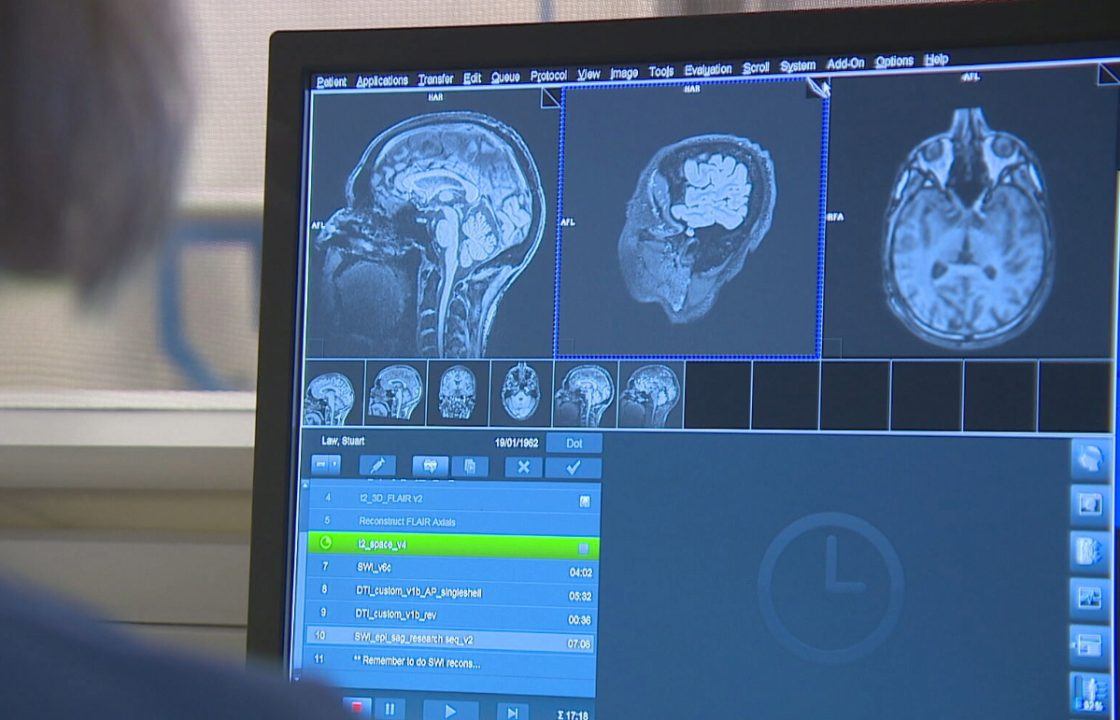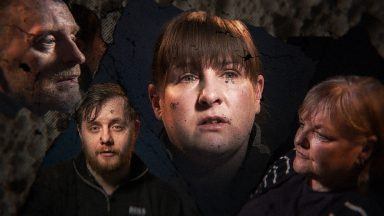A woman who has Alzheimer’s disease has said the progression of research has suffered a “devastating blow” after a new drug was rejected for use by NHS Scotland.
Donanemab delays the onset of dementia and works by targeting a cause of the disease, rather than just treating its symptoms.
But the Scottish Medicines Consortium says there isn’t enough evidence to prove how well it works.
Recently retired Rynagh has lived an enviable life, growing up in Ireland, moving to the US, and attending New York University.
Coming to Scotland, she expected to live out the rest of her life in peaceful retirement. Instead, she found out she had dementia.
She’s now thrown into finding a cure for Alzheimer’s – and says the rejection of this drug is a massive blow.
“What would it take to approve a drug for dementia?”, she said.
“Because it seems to be a lost in space for people. There aren’t annual check-ups or anything like there are with other diseases. So there’s no record of decline, which is unusual when you think about how progress is made with other diseases over time.
“Think about polio, leprosy, and cancer. They were known many years ago, but we don’t talk about them because of the needs and the cost.
“And I understand that cost is a factor, but the burden on society, even in comparison to those other diseases, is tremendous. Absolutely. And only tremendous. It’s not just the individual, it’s the community, it’s the family.
“It’s the cost to the next generation for what they lose out by having to provide that care and not being able to support their own families, immediate families, in the way that they will.”
Donanemab works when antibodies are given by infusion into a vein in the arm – they then bind with amyloids in the brain, a protein that builds up in Alzheimer’s patients, and leads to cognitive decline.
Those antibodies trigger immune cells, which clear the amyloid – and slow down the alzheimer’s process.
The Scottish Medicines Consortium rejected donanemab for use on the NHS as it said there wasn’t “enough evidence of how well it works.”
Meanwhile manufacturer Lilly claims the decision “does not consider … the clinical efficacy and cost-effectiveness” of the drug.
It’s left campaigners worried about the future of dementia research.
Henry Simmons, chief executive of Alzheimer Scotland, said: “The process that all drugs go through at present at the both the NHS in Scotland and England is a reasonable process however, we don’t think it is a reasonable way to tackle the issues we face in terms of the size and scale of dementia, and what we are calling for is a rethink on that.”
There’s hope the SMC will reconsider the drug, but in the meantime, Rynagh hopes people living with dementia don’t give up – and that awareness of the illness continues to grow.
“Well, when it comes down to it, it is the public”, she added. “And if the public doesn’t have the awareness, they won’t push.
“You know, like 66% is that about two thirds of people with dementia are women. Women typically are the caregivers, but then they need the care and it becomes this cycle and it is increasing instead of decreasing.
“And also with the population pyramid is kind of changing as well. We know that that the elderly population is getting bigger and that’s it’s a disaster that you should be able to see.
“It’s not that you’re seeing one seventh of the iceberg. We’re now coming to the point where it’s so far above the water, it should be that you can go around us and go through it and disperse it, but are not even talking about it at the level that we need to be talking about it.”
Follow STV News on WhatsApp
Scan the QR code on your mobile device for all the latest news from around the country


 STV News
STV News
























